The Second Generation of Ba'alei Teshuva: Integrating into the Haredi Society
Rabbi Yaakov Kugel has spent years guiding grooms and couples, during which he frequently met many *ba'alei teshuva*. He concluded that unique educational frameworks are required for them, leading to the establishment of Yeshivat Netivot Eish in Yad Binyamin.
 Rabbi Yaakov Kugel
Rabbi Yaakov KugelIf you enter Yeshivat Netivot Eish, the yeshiva established last year in Yad Binyamin, you will encounter a drum set right at the entrance to the Beit Midrash. Before you blink in surprise, you will discover that there are also two dogs belonging to two of the students, and then you might start to understand the guiding principle of this unique yeshiva.
Indeed, this is an exceptional yeshiva intended for the second generation of *ba'alei teshuva*, aiming primarily to allow the students to develop their inner world. In a conversation with Rabbi Yaakov Kugel, the head of the yeshiva, he explains: "We always tell our students: if you have a pet, a musical instrument, or a tool, you are welcome to bring them here, and it's even recommended that you do. And indeed, they do it."
He further notes that the study at the yeshiva is also conducted in a unique manner. "We engage with tractates that pertain to law, thereby making the Gemara accessible and promptly implementing it practically. This makes the study more practical and interesting. In addition to Gemara studies, we also study the Prophets and Jewish thought, and soon we will start with preparation for matriculations, workshops, and sports classes.
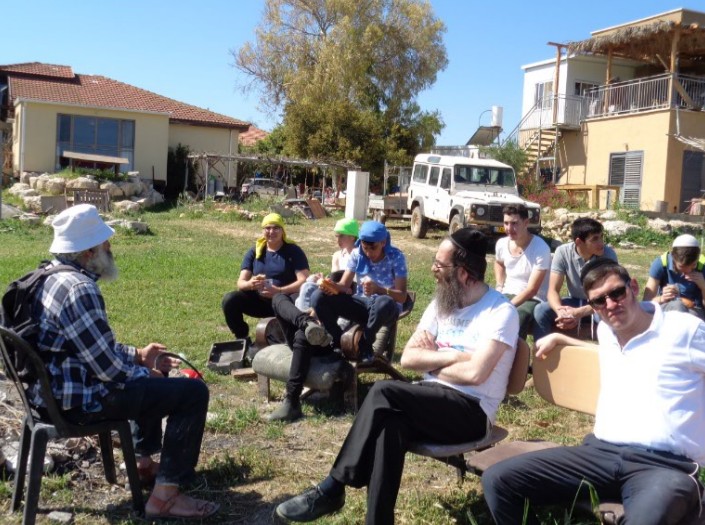
"In addition to studying at the yeshiva, it is important to us also to teach the students to be responsible on both a personal and social level," he emphasizes. "Therefore, we decided there wouldn’t be a maintenance staff at the yeshiva. There is a cleaner who comes on Fridays, when there are free Shabbatot and conducts thorough cleanings, but generally, on a daily basis, each student is responsible for clearing the food from the table, organizing his room himself, and participating in various cleaning duties. It is very important to us to instill social responsibility in the students. When we received the yeshiva, the yard was full of bushes and stones, but the students made a list of materials and tools they needed and simply managed to create a magnificent yard by themselves."
Preventing Dropout through Yeshiva
Rabbi Yaakov Kugel is also known to the public from his second role, as he is professionally a marriage counselor and also works with teenagers. "Due to my role as a guide," he shares, "I had the opportunity to get to know many families of *ba'alei teshuva* and saw the struggles of their children within the Haredi frameworks. I grew up in Rishon LeZion where most observant people were *ba'alei teshuva*, and thus, for most of my years, I happened to be in contact with them. Almost a decade ago, I also studied for an extended period in a kollel in Giv'at Ze'ev, where I was engaged in outreach in the afternoons. Last year, during the summer, I was called by Rabbi Shmuel Tal, known for his special affection for *ba'alei teshuva*, to establish a yeshiva that would provide a solution and a new horizon for the children of veteran *ba'alei teshuva* who suddenly found they weren’t integrated into the Haredi society as they had planned. Rabbi Tal told me that in a joint meeting with Rabbi Asher Yechiel Kasel, the rabbi of the Zoharim youth village, they concluded that if parallel institutions to the small yeshivas for the second generation are opened, they would prevent future dropout. Rabbi Tal decided to promote the idea and asked Rabbi Kasel to find a suitable person who could take on the challenge. Rabbi Kasel, being an old friend of mine, called me to the flag, and so we embarked on the journey. We created a program, recruited a registrar, met with community leaders, and began rolling out."
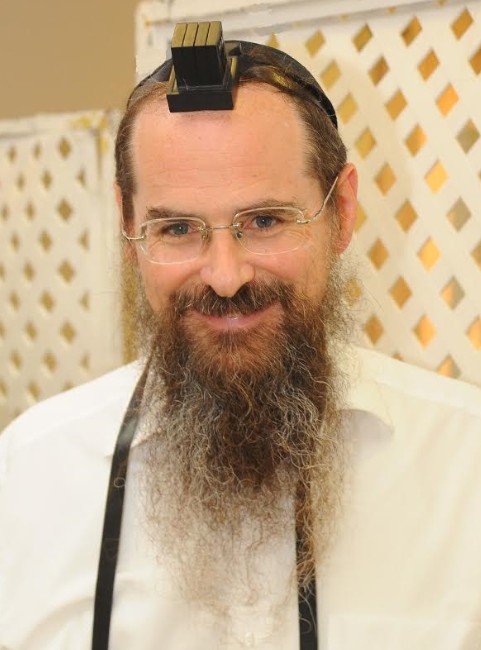 Rabbi Shmuel Tal
Rabbi Shmuel TalAnd why do you think the second generation needs such a unique framework?
"It’s no secret that about 75% of what is defined in the Haredi community as 'youth at risk' are the children of *ba'alei teshuva*, but if we look within the *ba'alei teshuva* community, we find that many of those children aren’t dropouts but were simply never part of the general Haredi community, and if society didn’t expect them to be within the rigid societal framework, they would be excellent and good youths, perfectly fulfilling their roles. The combination of rigid social rules as part of a spiritual framework and the difficulty in understanding the right of *ba'alei teshuva* to serve Hashem in their own way created the phenomenon of dropout among those precious children, leading them to draw closer to the street instead of to Hashem."
Do you think every member of the second generation needs such a framework?
"Certainly not. There are quite a few *ba'alei teshuva* who have successfully integrated perfectly, but there are also many good ones who, after it seemed they were integrating, suddenly found themselves outside. I think it depends on the fundamental approach of whether it’s worth it for me as a *ba'al teshuva*, who is very much living his process, to lose my place to be part of the Haredi community? And am I strong and wise enough to contain it without passing the conflict to the next generation? If the answer is positive, then I can integrate, but if I even have a 10% doubt that I won’t succeed in integrating, then it’s better for me to be part of an independent community and invest my energies in the right place and not in frustration. In any case, it’s important for me to note that in our yeshiva, all the students are from families of *ba'alei teshuva* for over 30 years, who raised their older children as regular Haredim, and at some point, for various reasons, made a change in perception."
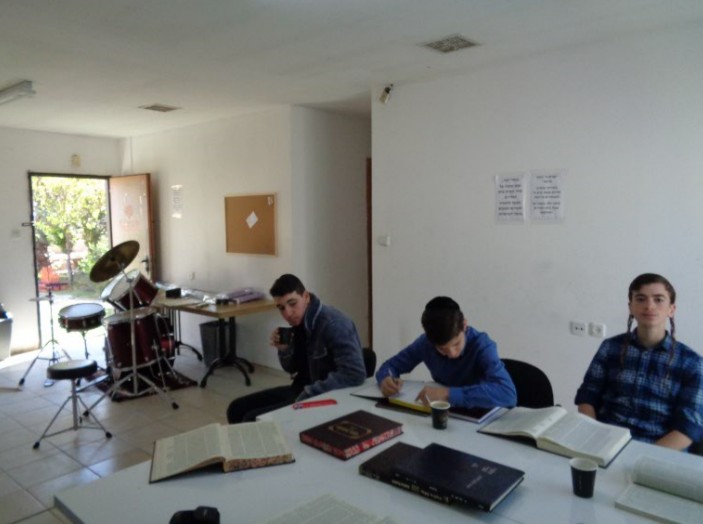
And Rabbi Kugel also wishes to emphasize an important point: "If at the end of the 70s and beginning of the 80s there were at most hundreds of families of *ba'alei teshuva* who could merge into tens of thousands of ultra-Orthodox, today there are already hundreds of thousands of such families, which is almost the same number as the 'original' Haredim, and it is very difficult for society to encompass a community equivalent in size and express it without losing its place.
"We must also remember that a *ba'al teshuva* by nature is someone who is always searching and is always in motion. In his life's outlook, there is nothing absolute and clear, and everything requires clarification and examination. He transmits this character to his sons and household. This can lead to significant friction with Haredi institutions, which usually seek to create a sense as if everything is clear and indisputable, and when a conflict arises between the home and the institution and its rabbis, the youths may reject the framework."
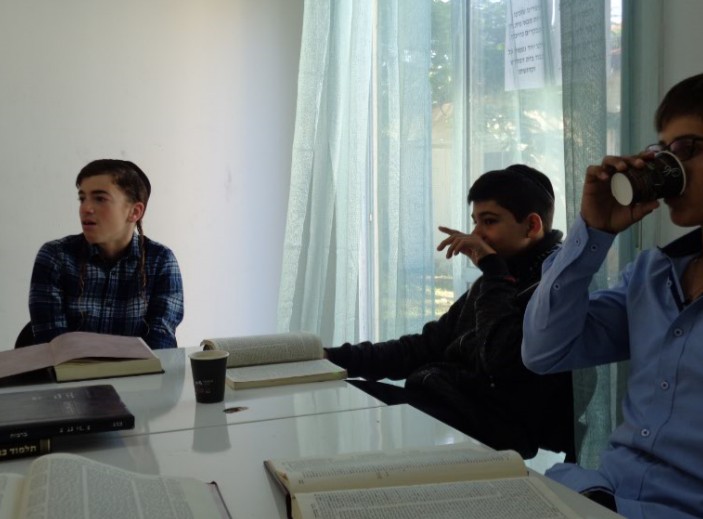
And who are the students that come to you?
"The yeshiva strives to accept students with average and above-average learning abilities, who aspire to serve Hashem but do not feel obligated to societal norms. Just recently, a student at the yeshiva approached the afternoon teacher. This is a student with a very different appearance than ours, yet he is truly a God-fearing and caring child. He told the teacher with great excitement: 'This is the first time I am in a place that does not label me by my clothing and appearance, but instead, they always say to me: 'You are a true servant of Hashem.' Here I am happy to be."
And what’s the next step? Where will the students continue to?
"This is a question that is difficult for me to answer. We understand that each student needs a completely individual and different approach. There are students whom I will send to a pre-military preparatory program, students who will continue to a large yeshiva, and some whom I will recommend going to work. The main thing is that eventually, each will do what is right for him, with the love of Hashem and closeness to Hashem."
"Our Goal is to Raise Strong Individuals"
However, as Rabbi Kugel notes, managing the yeshiva is not simple at all. "Clearly, there are difficulties," he admits. "The constant need to give the students, on one hand, full choice and guidance to reach good, with minimal coercion, and on the other hand to maintain very clear discipline rules - these are not simple tasks and require a lot of thought, listening, and determination from us. Additionally, we face many financial difficulties because it is a fledgling institution that demands many resources. All this creates a picture that absorbs us completely, both day and night."
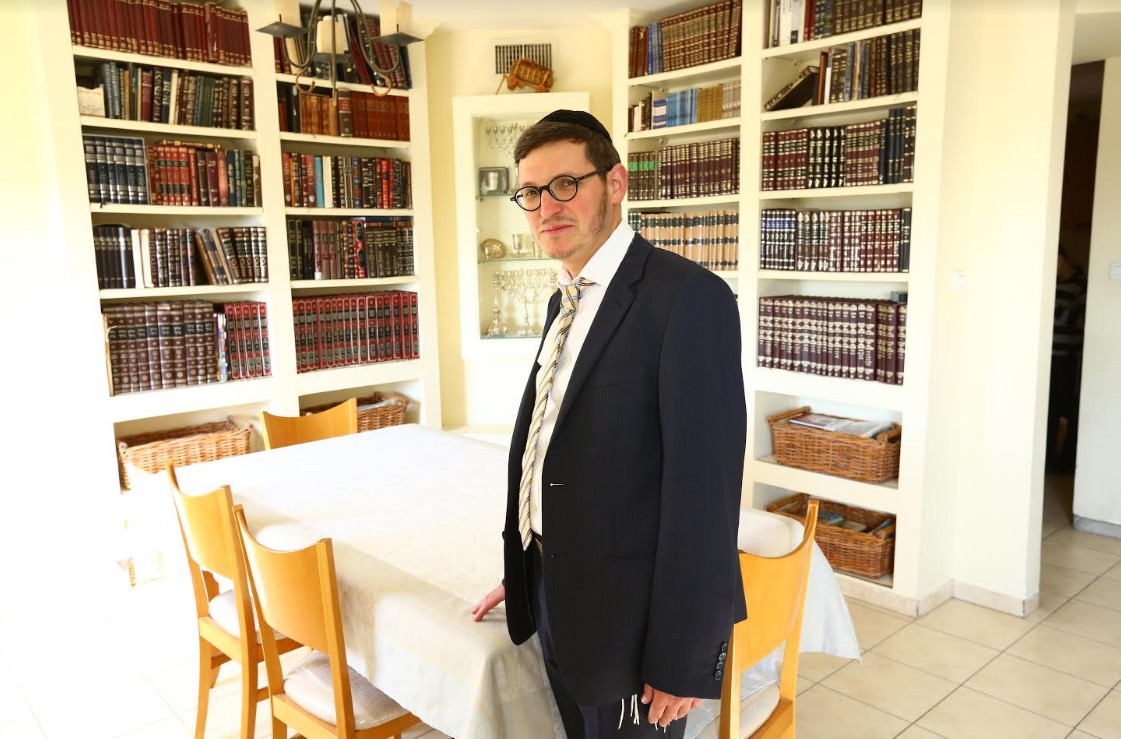
I returned from a management meeting on Kaf-Tet Adar where we all deepened our thinking on how to continue the path in light of the unique economic needs that must be for our students, and I shared with the students that we are currently examining our continued path in light of this. Suddenly, I felt I was in a house of mourning, and all the students had tears in their eyes. I tried to recover and said to them: 'Do not worry, Hashem will not abandon you. No matter what, we will certainly remain together.' Then, in a moment, the students began to smile, and a charged atmosphere was created. At that moment, I felt that if they feel this way, by the grace of Hashem, all the efforts and investments of Rabbi Tal and ours bore fruit, and indeed there is more way to go, but we succeeded and truly created a family here."

